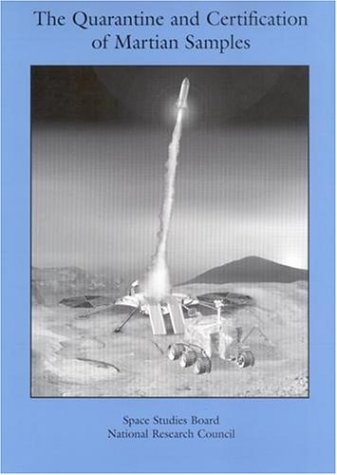

Most ebook files are in PDF format, so you can easily read them using various software such as Foxit Reader or directly on the Google Chrome browser.
Some ebook files are released by publishers in other formats such as .awz, .mobi, .epub, .fb2, etc. You may need to install specific software to read these formats on mobile/PC, such as Calibre.
Please read the tutorial at this link: https://ebookbell.com/faq
We offer FREE conversion to the popular formats you request; however, this may take some time. Therefore, right after payment, please email us, and we will try to provide the service as quickly as possible.
For some exceptional file formats or broken links (if any), please refrain from opening any disputes. Instead, email us first, and we will try to assist within a maximum of 6 hours.
EbookBell Team

0.0
0 reviewsOne of the highest-priority activities in the planetary sciences identified in published reports of the Space Studies Board's Committee on Planetary and Lunar Exploration (COMPLEX) and in reports of other advisory groups is the collection and return of extraterrestrial samples to Earth for study in terrestrial laboratories. In response to recommendations made in such studies, NASA has initiated a vigorous program that will, within the next decade, collect samples from a variety of solar system environments. In particular the Mars Exploration Program is expected to launch spacecraft that are designed to collect samples of martian soil, rocks, and atmosphere and return them to Earth, perhaps as early as 2015.
International treaty obligations mandate that NASA conduct such a program in a manner that avoids the cross-contamination of both Earth and Mars. The Space Studies Board's 1997 report Mars Sample Return: Issues and Recommendations examined many of the planetary-protection issues concerning the back contamination of Earth and concluded that, although the probability that martian samples will contain dangerous biota is small, it is not zero.1 Steps must be taken to protect Earth against the remote possibility of contamination by life forms that may have evolved on Mars. Similarly, the samples, collected at great expense, must be protected against contamination by terrestrial biota and other matter. Almost certainly, meeting these requirements will entail opening the sample-return container in an appropriate facility on Earth-presumably a BSL-4 laboratory-where testing, biosafety certification, and quarantine of the samples will be carried out before aliquots are released to the scientific community for study in existing laboratory facilities. The nature of the required quarantine facility, and the decisions required for disposition of samples once they are in it, were regarded as issues of sufficient importance and complexity to warrant a study by the Committee on Planetary and Lunar Exploration (COMPLEX) in isolation from other topics. (Previous studies have been much broader, including also consideration of the mission that collects samples on Mars and brings them to Earth, atmospheric entry, sample recovery, and transport to the quarantine facility.) The charge to COMPLEX stated that the central question to be addressed in this study is the following: What are the criteria that must be satisfied before martian samples can be released from a quarantine facility?